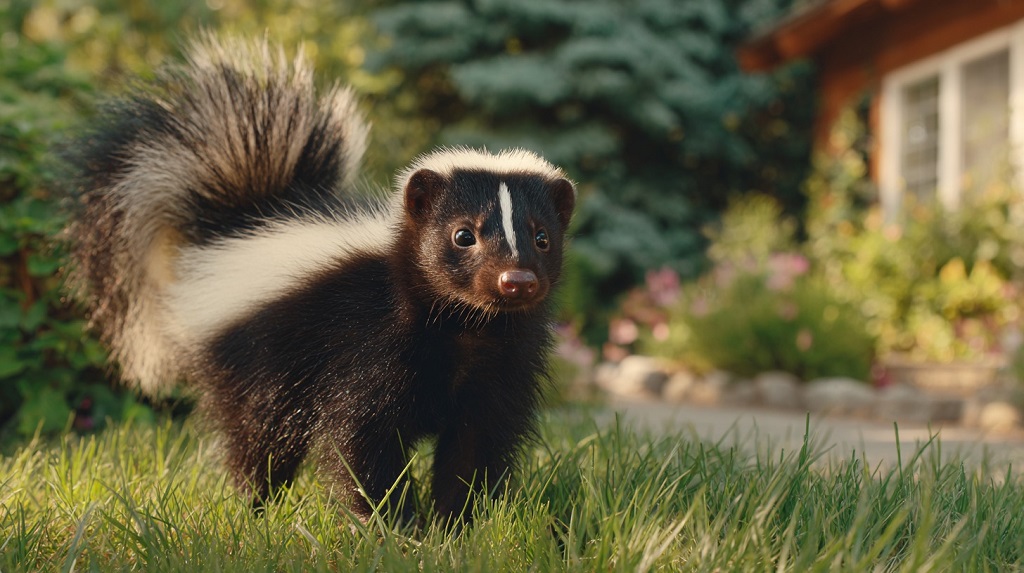Virginia has a rich history, but it also has some weird laws that make no sense today. A few are harmless and funny, others are outdated leftovers, and some are still officially on the books. You will see everything from trick-or-treat bans to cave rock sales rules, and even laws about what happens in the bedroom.
Not all of them are real anymore, but every one of them has been claimed or recorded in some way. Some were struck down, others repealed, and a handful could still technically land you in trouble.
Here are 20 weird laws in Virginia that were in effect at some point throughout history.
1. In Chesapeake, You Can Get in Trouble if You Trick-Or-Treat After Turning 14

Chesapeake passed a law that bans kids over 14 from trick-or-treating, and younger ones have to stop by 8 p.m. It came after older teens started smashing pumpkins, stealing candy, and pulling pranks in the late 1960s. The city wanted control, so they went with a blanket rule. It still sits on the books even though police rarely enforce it.
Plenty of other places also try to cut Halloween short. In Belleville, Illinois, anyone older than 12 who trick-or-treats is technically breaking the law.
2. In Richmond, Flipping a Coin in A Café to Pick Who Pays Is Against the Law

Richmond has a law that makes it illegal to flip a coin in a restaurant to decide who pays for coffee. Nobody is going to jail for it, but it’s still part of the city code. It feels like a leftover from a time when gambling bans were written so broadly they even caught coin flips. What’s funny is that a simple way to split a check is technically considered unlawful.
Other states had similar habits of overreaching. North Carolina once had a law against “games of chance” that covered more than gambling halls. It could even hit friendly poker nights at home. Laws like this usually start with moral campaigns and stick around because nobody bothers to take them off the books.
3. Norfolk Actually Banned Spitting on Seagulls
Norfolk’s city code includes a rule that makes it illegal to spit on seagulls. It sounds like parody, but it ties back to public health and animal protection ordinances. Seagulls are everywhere on the coast, and they already deal with people feeding them junk food and chasing them. Adding spitting into the mix was one step too far, so the city banned it outright.
Odd animal laws pop up in plenty of places. In Key West, Florida, chickens walk the streets freely, and harming them can get you fined. Municipalities often write these rules after one too many complaints, so what looks funny on paper usually came from someone doing something gross or cruel.
4. In Culpeper, You Cannot Wash a Mule or Donkey on The Sidewalk
Culpeper wrote an ordinance against washing mules or donkeys on sidewalks. It may seem laughable now, but when towns had dirt roads and livestock in the streets, sanitation mattered. Washing animals on sidewalks left puddles and waste where people walked, so lawmakers decided to ban it.
Plenty of old American towns carried laws tied to keeping the streets clean. In New York City, fines once targeted horse owners who failed to clean up manure left in the road.
5. Virginia Made It Illegal to Sell Cave Formations Like Stalactites or Stalagmites
Virginia has a law against selling cave formations. People used to chip away stalactites and stalagmites as souvenirs, and caves got destroyed because of it. Lawmakers stepped in to protect natural landmarks from being stripped bare.
Carlsbad Caverns in New Mexico faced the same problem before it became a national park. Visitors broke off so many formations that officials had to guard sections to stop further damage.
6. Only Ham Cured in Smithfield Can Legally Be Called Smithfield Ham
Smithfield Ham is protected by law, just like Champagne in France or Parmigiano-Reggiano in Italy. By Virginia code, the ham must be cured within the town limits of Smithfield for it to carry the name. It’s a way of protecting tradition and the local economy at the same time. Anyone else making ham elsewhere has to call it something else.
Food protections like this exist all over. In Vermont, maple syrup labeling is tightly controlled, and in Vidalia, Georgia, only onions from a set region can be sold under the Vidalia name.
7. Drivers Once Had to Honk the Horn Before Passing Another Car
Older traffic laws in Virginia required drivers to honk before overtaking another vehicle. It made sense when roads were narrower and cars were slower, but it feels ridiculous now. Modern traffic would turn into a chorus of horns if everyone followed that rule. Eventually, it faded away, but at one time, it was a serious part of driver etiquette.
Other states had similar oddities. In New Jersey, there was a rule that cars had to come to a complete stop when horses approached. Road laws often carried over from rural life, and when times changed, some of them just stayed in the books long after they made sense.
8. People Repeat that Barefoot Driving Is Illegal, but It Never Was
A common rumor says you cannot drive barefoot in Virginia, but that has never been true. Driving without shoes might be uncomfortable or unsafe, but it’s legal everywhere in the United States. Police officers sometimes discourage it, but no law bans it.
The myth hangs around because it sounds believable, and parents like to repeat it to kids.
Odd driving myths pop up in plenty of places. In Ohio, there’s a rumor that it’s illegal to drive without your headlights on during the day, which is not true either.
9. Virginia Once Banned Hunting on Sundays, Except for Raccoons, Until 2 A.M.
For years, Virginia had a strict ban on Sunday hunting, part of the state’s blue laws that tied back to church traditions. The one exception was raccoons, which hunters were allowed to chase until 2 a.m. Sunday morning. It sounds like a joke, but the state genuinely singled out raccoons while banning everything else.
The law finally loosened in 2014, but many still remember it as one of the strangest quirks in Virginia’s hunting code.
Blue laws used to be common in America, covering everything from alcohol sales to store hours. In some New England towns, you still cannot buy liquor on Sundays.
10. You Can’t Legally Own a Skunk as A Pet in Virginia

Skunks are off-limits as pets in Virginia. The law is tied to public health and wildlife protection since skunks are known carriers of rabies. Even if someone raises one from birth, the state does not allow it. That hasn’t stopped a handful of people from trying, but animal control makes the rule clear.
Plenty of states take the same approach with exotic pets. New York bans ferrets in New York City, and many southern states ban raccoons as pets.
11. Virginia Once Made It a Crime to Swear in Public or Over the Phone
At one time, Virginia could charge you with a misdemeanor for swearing in public or even cursing over the phone. The law sat in the state code for decades before being repealed in 2020. Critics argued it violated free speech, and by modern standards, they were right.
Still, people really did get fined in earlier decades for letting curse words fly in public.
Other states carried similar laws until recently. North Carolina had its own profanity ban that was struck down in 2011.
12. Some Towns Said You Could Not Keep a Bathtub Sitting in Your Yard
Several Virginia towns wrote ordinances against having bathtubs left outside in yards. Officials tied it to sanitation concerns, since open tubs collected standing water and drew mosquitoes. In practice, it also stopped yards from turning into junk lots filled with bathroom fixtures.
On paper, it looks ridiculous, but it had a practical motive when it was introduced.
Laws like this are not unique to Virginia. In Phoenix, Arizona, outdoor furniture that isn’t meant for weather use can’t be kept in front yards. Small local codes often come across as laughable today, but they were written for very specific problems cities faced at the time.
13. There Is an Old Claim that Women Needed a Red Flag Escort to Drive, But It Is a Myth
One of the strangest stories floating around about Virginia is that women once needed a man to walk in front of their car, waving a red flag, before they could drive on Main Street.
No record shows this was ever written into law in Virginia. It looks like an exaggerated retelling of early car laws from the late 1800s, when some states and even parts of Britain required flag bearers for automobiles in crowded areas.
The myth survives because it fits into old-fashioned views about gender roles and makes for a good laugh at how backward laws used to be.
14. Parking on Railroad Tracks Is Illegal in Virginia

Virginia’s code makes it illegal to park a vehicle on railroad tracks. It seems like common sense, but officials put it in writing to cover liability and safety. Trains cannot stop quickly, and abandoned cars on tracks have caused serious accidents in the past. The law is not quirky so much as a reminder of how lawmakers sometimes legislate against plain stupidity.
Federal agencies record dozens of car-train collisions every year across the country, and most happen at crossings where drivers thought they had time to cut across. The law might sound obvious, but it has a deadly serious reason behind it.
15. Hunting from A Moving Vehicle Is Against the Law
Virginia bans shooting wildlife from a moving car. Hunters in rural areas once did it to save time, but it was dangerous and unfair to the animals. The law came in as part of broader hunting reforms to stop reckless behavior.
Plenty of states share the same restriction. In Texas, hunting from vehicles is also banned, though landowners can get special permits for feral hogs.
16. Adultery Is Still a Crime in Virginia, Even if Nobody Goes to Jail for It
@mikerafi Is Adultery Legal? #lawyer #court #law #personalinjurylawyer #attorney ♬ original sound – Mike Rafi
Adultery remains listed as a Class 4 misdemeanor in Virginia. The punishment is a fine of up to $250, but in reality, the law is barely enforced. Prosecutors avoid it, and most people do not even realize it is still written into code. Family lawyers sometimes mention it during divorce cases, but it carries no real weight anymore.
Other states have adultery laws on the books, too. In Michigan, adultery is technically a felony. These outdated moral codes survive because no one bothers to repeal them, even when they no longer match modern society.
17. Until 2005, Virginia Punished Unmarried Couples for Having Sex
For decades, Virginia treated sex between unmarried adults as a misdemeanor. The law was part of the state’s fornication statute, and couples really could be fined if caught.
That ended in 2005, when the Virginia Supreme Court struck it down in Martin v. Ziherl, ruling it violated the right to privacy.
Even though nobody had been dragged off to jail for it in years, the fact that the law still existed shocked many people.
Plenty of other states had similar “fornication” laws, most of them tossed aside after the 1970s.
18. The State Once Criminalized Oral and Anal Sex, Struck Down in 2003
Virginia enforced a “crimes against nature” law that outlawed oral and anal sex, even between consenting adults.
Police used it in a few cases until the U.S. Supreme Court overturned such bans nationwide in Lawrence v. Texas in 2003.
After that, Virginia could no longer apply the rule. It had been written so broadly that it technically criminalized private acts in bedrooms, not just cases of assault or minors.
Other states had the same statutes, but Virginia gained attention for keeping it active for so long.
19. People Say Virginia Banned Sex with the Lights On, But No Such Law Exists
You’ll often see it repeated that Virginia made it illegal to have sex with the lights on. That claim shows up on “weird laws” lists across the internet, but no code or record supports it.
It’s one of those myths that spreads because it’s too good as a joke to ignore. It probably came from confusion around old adultery and fornication laws.
Urban legends like this aren’t unique to Virginia. In Florida, people spread the rumor that sex with a porcupine was once illegal, which also isn’t true. Weird “bedroom laws” make great headlines, but most never existed in the way people say.
20. The Claim That Virginia Made It Illegal To Tickle Women

People say Virginia banned tickling women, but there is no record of it in the state code. The story likely came from someone twisting old assault or battery language into a joke. Over time, it stuck as a “weird law” even though it never existed.
Other states have the same kind of myths. Vermont is often said to ban whistling underwater, which is also false.
Final Thoughts
Laws are meant to keep order, but Virginia shows they can also be messy, funny, and downright strange. Some once served a purpose, others came from outdated morals, and a few never existed at all.
It all comes down to knowing which rules are real and which are folklore. In Virginia, that line has never been as clear as you might expect.
Another law that might sound strange but actually make sense is that it’s illegal to cut cactuses in Arizona.


